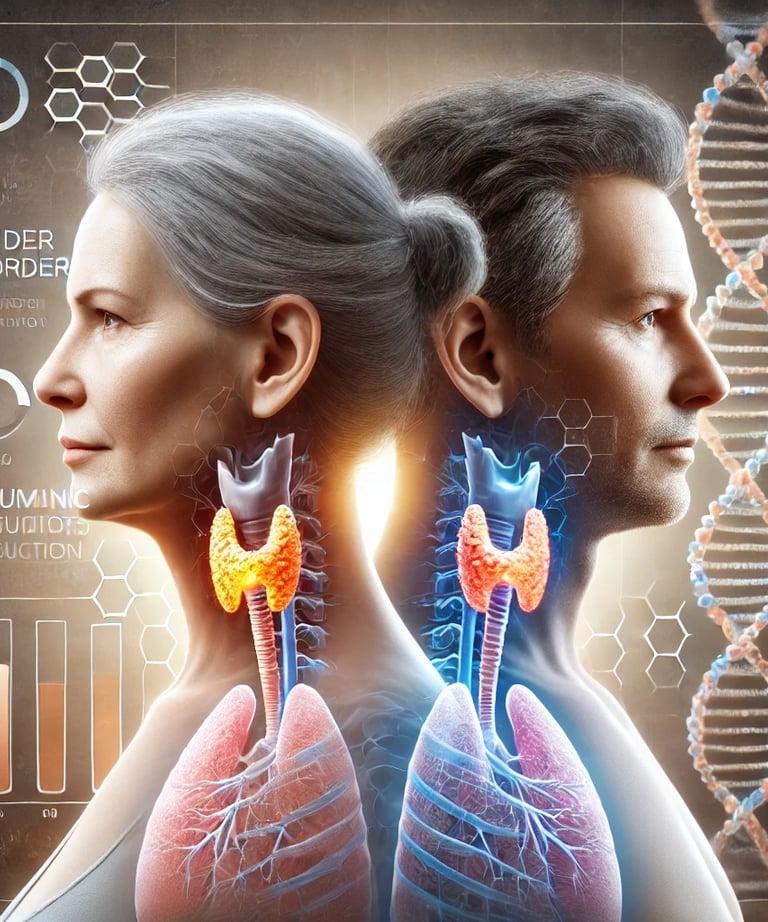Gender Disparity in Thyroid Disorders: The Rising Risk for Aging Women
Here is the realistic medical illustration representing the gender disparity in thyroid disorders. It highlights the increased risk in aging women, the influence of estrogen, and the comparative stability in men.
Dr.Muhammad Babar Imran
3/10/20251 min read


Thyroid problems are markedly more common in women than in males, with women being more than five times as likely to suffer thyroid-related disorders. This gender discrepancy is not only significant but also intensifies with age, underscoring the increasing susceptibility of women to thyroid disorders as they age. At the age of 60, women had a 17 percent higher likelihood of acquiring a thyroid disease, highlighting the increasing hazards linked to ageing. In contrast, men have a comparatively lesser increase in thyroid problems, with a 9 percent rise by the same age. The gender disparity in the prevalence of thyroid disease has generated interest in elucidating the biological, genetic, and hormonal variables that contribute to this variation. Oestrogen is hypothesised to be a crucial element, as it influences the immune system and thyroid function, potentially increasing women's susceptibility to autoimmune thyroid illnesses as Hashimoto's thyroiditis and Graves' disease. Moreover, the hormonal fluctuations linked to pregnancy and menopause might affect thyroid health, hence exacerbating the gender-based discrepancy in the prevalence of thyroid diseases. This result underscores the significance of early detection and consistent monitoring of thyroid dysfunction, particularly in ageing women. The notable rise in thyroid diseases in older women underscores the necessity for proactive healthcare methods, encompassing more thorough screening and treatment choices specifically designed to address the distinct health issues women encounter in managing thyroid health throughout time.

Contact
Get in touch for inquiries or appointments.
Connect
muhammadbabarimran@yahoo.com
03001551966
© 2025. All rights reserved. Dr.Muhammad Babar Imran
